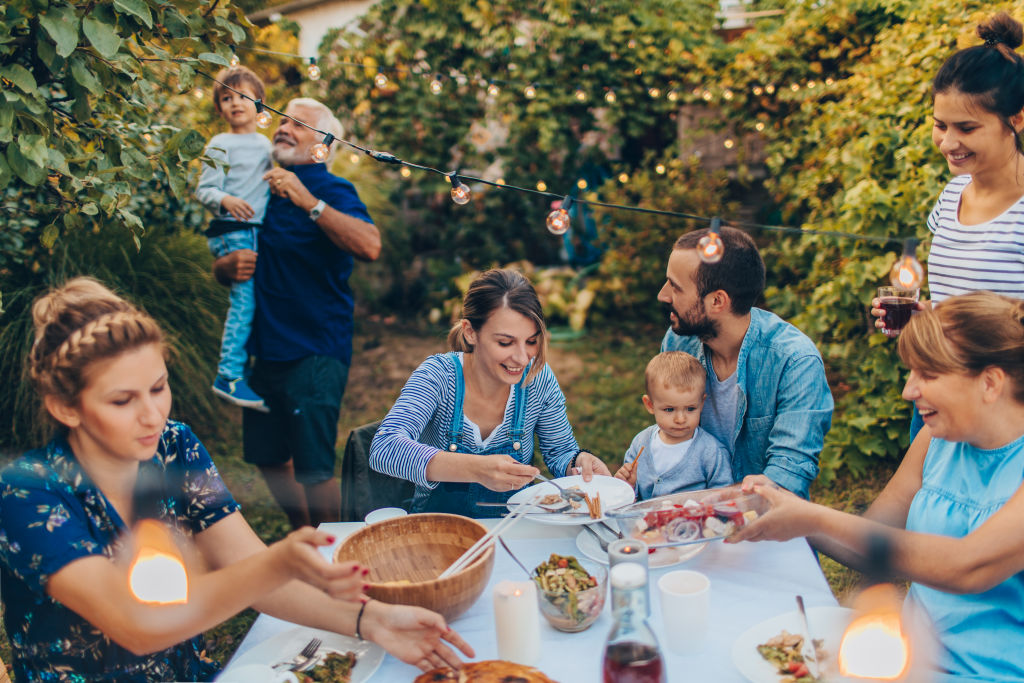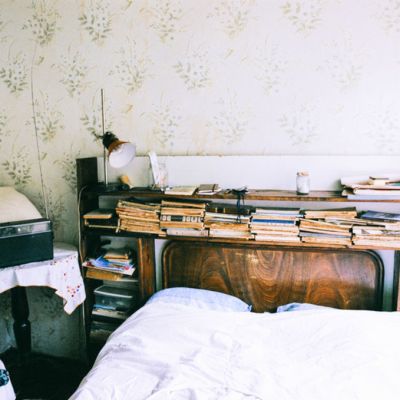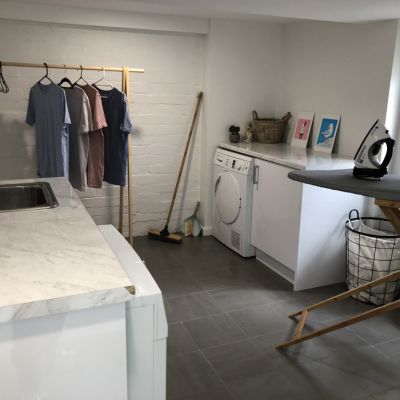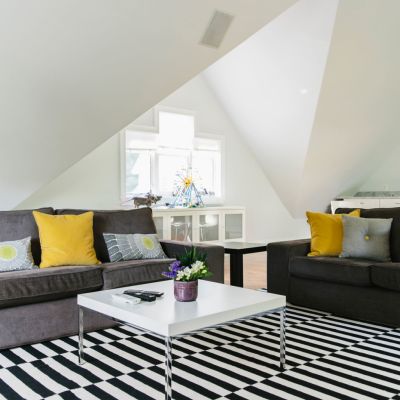House rules still have the power to drive us a bit crazy

Generally speaking, I like to think I’m a pretty welcoming host.
I don’t judge, I make a fuss of visitors, I serve decent biscuits… but if anyone reaches to put a mug of boiling tea down on my antique table, I’m a screeching Hyacinth Bucket, hurling myself across the room with a coaster before it touches the surface. I also refuse to let any guest light a candle in my home, due to a house fire a decade ago, and I won’t allow lilies because they’re lethal to cats and make everything smell like a funeral parlour. (When I have been given the great, scented beasts, I exclaim politely and leave them in a jug of water outside “to keep them fresh” until the guests have left.)
On the other hand, I don’t care if guests tramp all over the rooms in muddy boots (no shoes-off-at-the-door rule here, although it probably helps that we have hardwood floors, and the dog’s already ruined them with his scrabbling claws…). Yet despite my own, lengthy mental list of visitor dos and don’ts, it hadn’t occurred to me how niche (and often downright odd) individual household rules can be – until I saw the news that 55 per cent of us maintain very clear regulations on the matter.

A survey from the furniture company SCS reveals that the most stringent indoor requirement is “no smoking”, followed by “no eating upstairs”, “clean up after yourself” and “don’t leave the loo seat up”. However, the most commonly enforced rule, “take your shoes off at the door”, is probably the most controversial. There is a clear, and painful divide here; some householders crumple in horror at the idea of visitors tracking germs, filth and gravel across their pristine carpets. Others just shrug and get the Hoover out occasionally.
Recently, I foolishly shared a picture on Instagram, of me cuddling the dog with my booted feet on a sofa cushion. The comments were the written equivalent of a full-scale biblical stoning.
Talking to friends suggests my “shoes on” approach is indeed a minority habit. Because while I have no fear of mud or germs (I live in the country and we have doormats; besides, our immune systems will benefit), it seems an awful lot of “house rules” begin and end with slippers.
“I ask everyone if they’re happy to take shoes off at the front door,” says my friend Ruth, a physiotherapist. “The idea of walking pesticides, other people’s phlegm (have you noticed how many people spit everywhere in recent years?) or just pavement dirt into my home is revolting.”
Most people, of course, are willing to comply – but as my friend Tonia, a consultant, points out, this is not always ideal for guests, who have carefully planned their outfit to attend a gathering. “I am very short, and recently, I went to a party wearing a maxi-dress and high cork-soled platforms. “They were new and very clean, but our hosts had a strict no-shoes policy,” she explains.

“They were so adamantly anti-shoes, they had a basket of slippers at the door.” These were the one-size-fits-all white towelling kind favoured by health spas, she adds.
“I spent the evening shuffling round feeling like an asylum inmate, with my dress trailing on the floor,” she sighs. “I really think slippers should be optional when people have made an effort to dress up.”
There’s also the issue of socks, adds my friend Sarah, a PR consultant. “I once went for a job interview at the boss’s home,” she recalls. “I was in my smartest outfit all set to impress, when she asked me to remove my shoes, which were boots, I was wearing socks with my name on. I had to sit on her sofa, in my “Sarah” socks and explain why I was the right person for the job.”
She did not get the job.
Sarah also recalls another friend who insisted on “a mandatory pair of giant comedy slippers to wear in her house. It very much ruined any potential flirtation at dinner parties,” she adds. But at least “no shoes” is a common rule that we have come to expect, unlike some of the weirder stipulations that I have come across.
An acquaintance of mine insists that guests dump their mobile phones in a basket as they enter the hallway.
Presumably it’s a well-meaning attempt to encourage conversation, but in reality, it just means a stream of guests sneaking off “to the loo” and frantically checking their mobiles for missed calls from the babysitter. In fact, any “house rule” that smacks of excessive control can be unpleasant. Surely the point of inviting anyone into your home is to encourage them to relax, and treat your place as theirs – not suspiciously nod them over the threshold and pat them down for contraband. The worst rules, for me, though, are the ones you unwittingly break, because nobody mentioned they existed until you have broken them.
I once stayed at a friend’s house in the university holidays, and when her parents joined us for breakfast, her mum said: “We don’t usually flush the loo in the night. It wakes the whole house.”
I was mortified to have triggered their creaky plumbing so publicly – but surely, I thought, not flushing would be worse. On reflection, I think this is the key to setting reasonable house rules: will anyone be embarrassed or inconvenienced? Not eating on the sofa, using coasters, opening windows to air the room – they may be slightly fussy instructions, but they’re not ridiculous.
When they are, though, it’s up to guests to decide if they ever want to visit again. “My ex-sister-in-law used to place an old throw on the perfectly ordinary sofa to protect it, before we sat down on it,” recalls Ruth.
“It made us feel like filthy peasants. I once ate a piece of toast standing up, and she practically teleported in front of me with a plate, she was so terrified of crumbs.” Did the friendship continue? “Well, no,” says Ruth. “In fact, I was delighted to have a good reason never to visit her again.”
- This post originally appeared on stuff.co.nz
We recommend
We thought you might like
States
Capital Cities
Capital Cities - Rentals
Popular Areas
Allhomes
More










